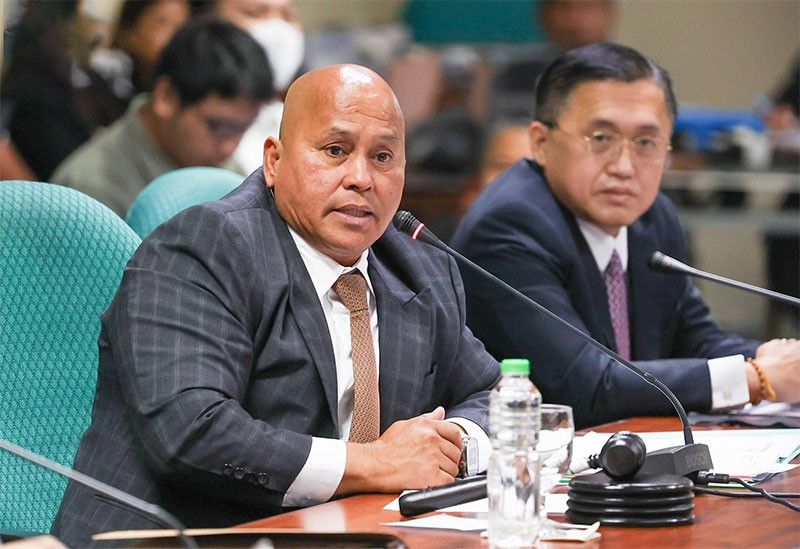Unlikely for Bato to be ‘insider witness’ – ICC lawyer

MANILA, Philippines — Given his role in the implementation of the previous administration’s war against illegal drugs, it is unlikely for Sen. Ronald “Bato” dela Rosa to be considered an “insider witness” in the ongoing investigation of the International Criminal Court (ICC), according to a lawyer representing the victims of the bloody anti-drug campaign.
ICC assistant to counsel Kristina Conti said they see Dela Rosa, former chief of the Philippine National Police (PNP), as among those who are most responsible in the killings committed in relation to the Duterte administration’s anti-illegal drug campaign.
“Given the signals from the Office of the Prosecutor, I would say that there are at least two persons thought to be most responsible for the killings,” Conti told “Storycon” on One News yesterday.
“The word that they use is ‘the most responsible’ or ‘those who bear the greatest responsibility.’ (They don’t) mean one person. In the case of president (Rodrigo) Duterte, what ties him to the war on drugs is his statements, his policy pronouncements. But who implemented that? It was Senator Dela Rosa and the Philippine National Police,” she added.
Dela Rosa was Duterte’s first chief of police and the one who signed Command Memorandum Circular 16-2016, which set the guidelines for the then Project Double Barrel.
The directive operationalized Oplan Tokhang, which led to deadly police operations against alleged drug personalities.
Conti said the ICC is also looking at killings linked to the so-called Davao Death Squad, including during the time when Dela Rosa was Davao police chief.
“I would say it is unlikely that he would be exculpated or called upon as a ‘state witness.’ Against who?” Conti said.
“For Senator Dela Rosa, he really has to lay down his cards: what does he know and up to what extent is he willing to push for this cooperation with the ICC?” she added.
Dela Rosa earlier maintained that he would not cooperate with the ongoing investigation, but he also said he is willing to be interviewed.
The senator was among those who were earlier identified by the ICC Office of the Prosecutor as a suspect in its investigation.
Also tagged as suspects were former PNP chief Gen. Oscar Albayalde, then PNP Criminal Investigation and Detection Group chief Maj. Gen. Romeo Caramat Jr. who now heads the Northern Luzon Command, National Police Commission Commissioner Edilberto Leonardo and then PNP chief intelligence officer Brig. Gen. Eleazar Matta who is the current chief of the Drug Enforcement Group.
Asked about reports that Caramat could become an insider witness, Conti said it is up to the ICC to determine if they would offer him a deal in exchange for testifying.
The ICC official noted that Caramat was “high enough in the ladder, but low enough” to claim that he did not have a say in the directive in the conduct of the drug war.
Still, Conti said Caramat’s designation as a suspect is also an indication that the ICC prosecutor could have seen that he “had enough power or authority to determine when or where the killings would happen.”
Hopeful
Conti said the victims of the drug war are hopeful following recent developments, including the ongoing probe at the House of Representatives.
While there are some convictions in the cases filed in local courts, she stressed that these were only limited to individual incidents.
“There are at least 6,252 police operations where people died… this is too much of a coincidence, so we need to look at the policy,” she said.
She said they do not have information regarding the release of arrest warrants, noting that these are often confidential in nature.
“There could already be a warrant, and they are finding a way to implement it,” she added, stressing that only the ICC or the Philippine government can confirm this.
If a warrant is issued, the President can direct the PNP to implement it, Conti said. — Cecille Suerte Felipe, Jose Rodel Clapano
- Latest
- Trending




























